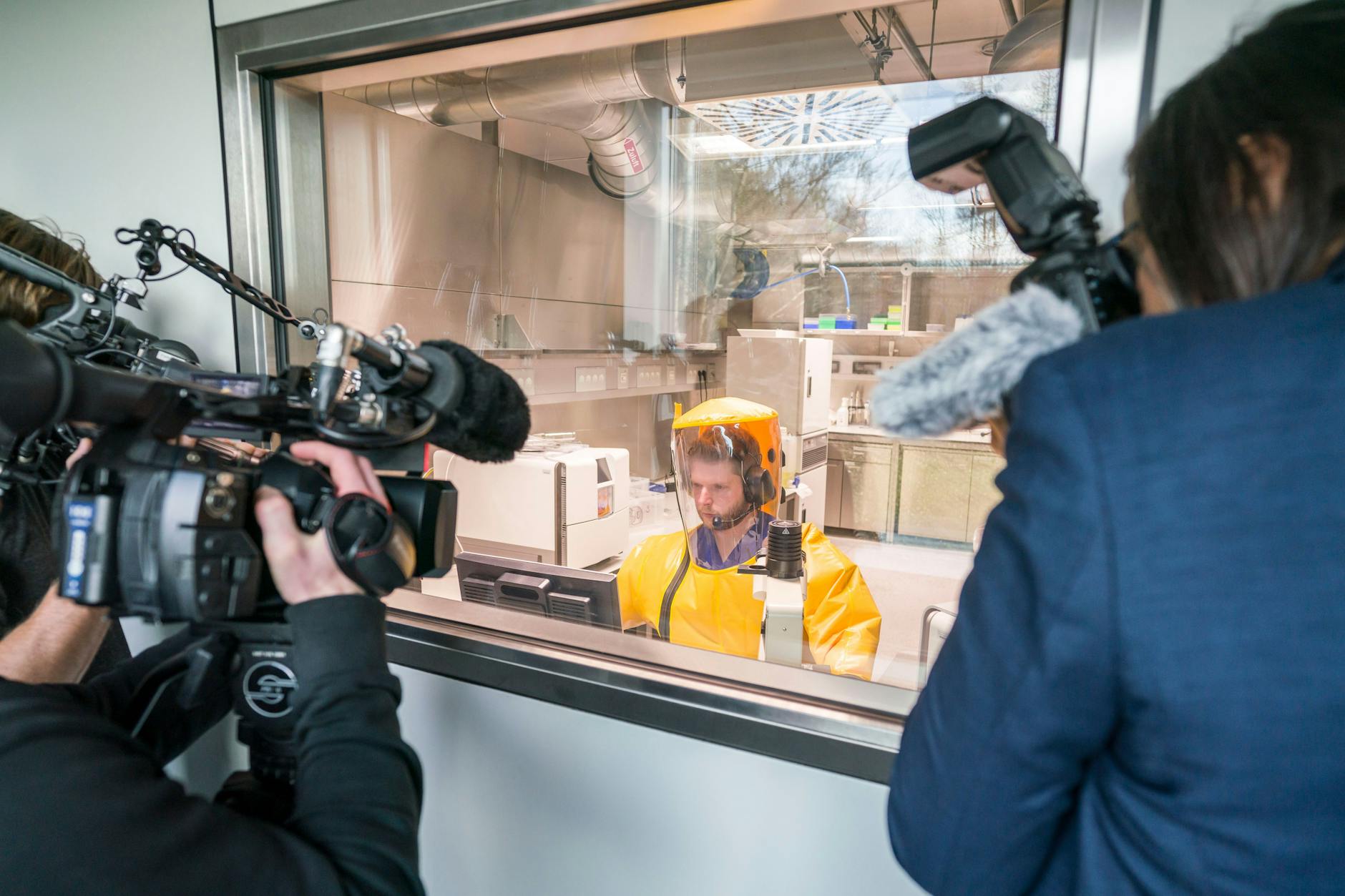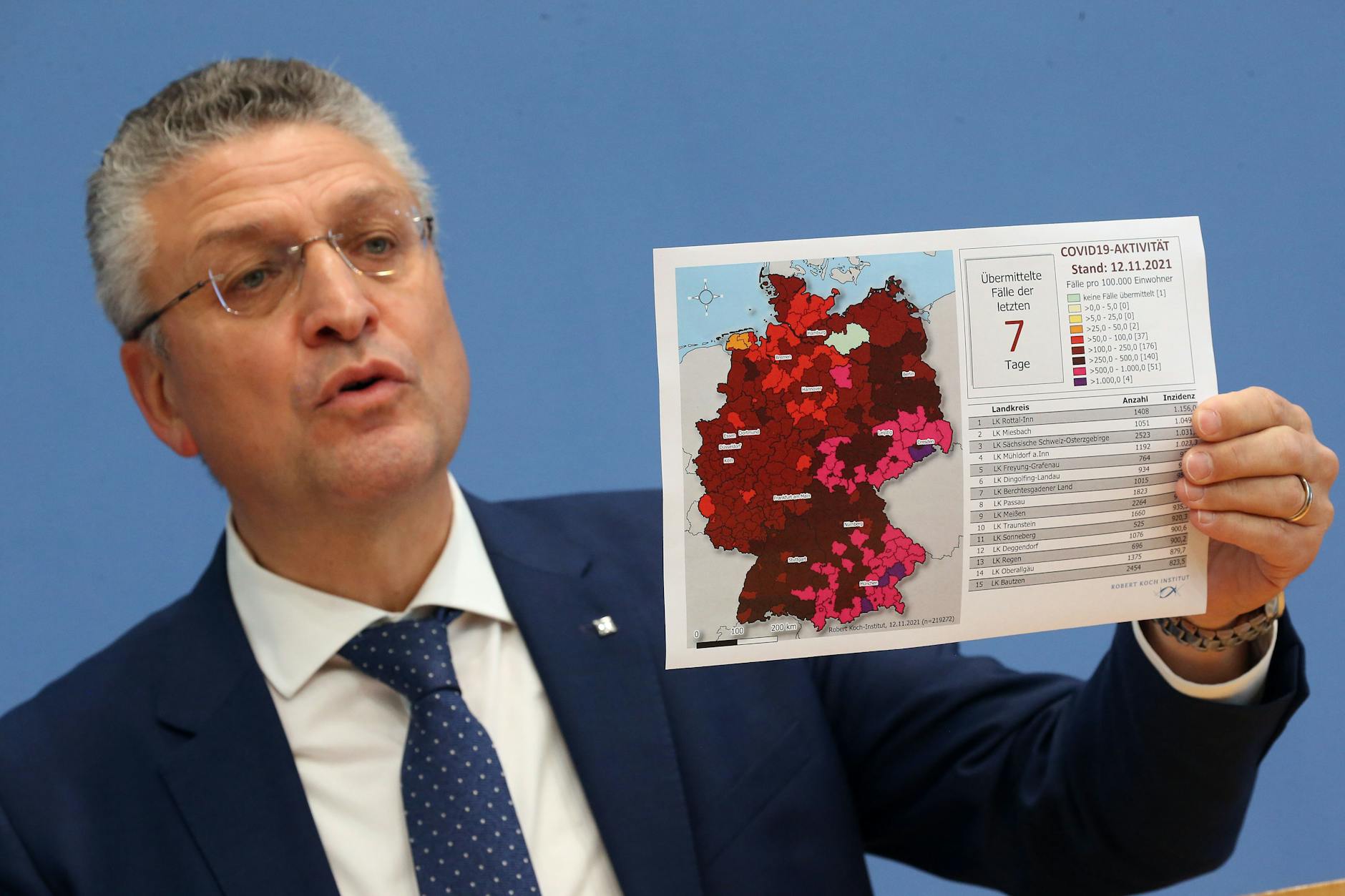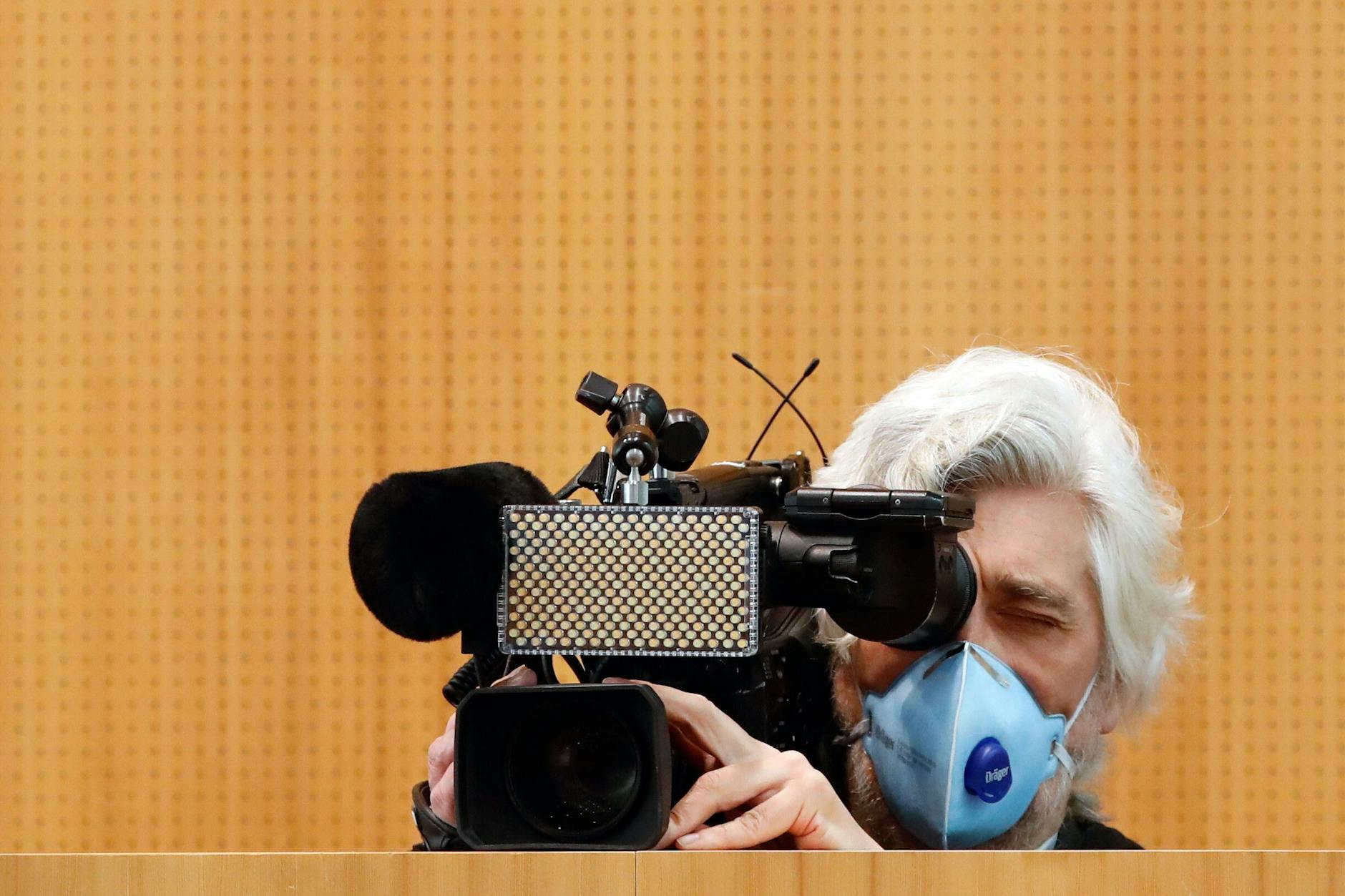How Corona reporting shook my view of journalism

Many people might be thinking: Oh, not coronavirus again! We're glad it's over. Yes, I would be too, if it were really over. But we urgently need to talk, without foaming at the mouth, without mutual condemnation , without pigeonholing the other person. Because what happened in 2020 and the years since must not happen again. And that's why we journalists, in particular, urgently need to rediscover our self-image as unconventional questioners, open-minded truth seekers, and fearless critics.
I remember a conversation with my then 13-year-old son in early February 2020. He talked about a virus from China that was spreading around the world, and that schools might soon be closed. Of course, I had heard and read about this virus. But at this announced wishful thinking of a teenager who naturally preferred spending his time on the football field or in front of the computer to the classroom, I could only smile gently. I would never have believed what happened next. And it was beyond my imagination that, precisely in such a crisis, a large proportion of journalists would put aside their most important task—fulfilling their responsibility as the fourth estate.
The station collapsed shortly afterwardsBut after the Robert Koch Institute's highly questionable upgrade of the pandemic's risk rating on March 17, 2020, the dam broke, and the coronavirus avalanche poured unchecked into all of our lives. Panic spread. But I was prepared. I was prepared, thanks to an interview that virologist Karin Mölling gave on March 14 – shortly before the start of the first lockdown – in the science magazine "Die Profis" on RBB's radioeins. (Transparency note: I myself edited this program for 14 years.) Her book "Viruses - Superpower of Life" was due to be published in May 2020. During the interview, she explained that she had long wanted to abolish handshaking because of the general high risk of infection. But she also emphasized that Sars-CoV-2 was not a massively deadly threat and that the most important thing now was to prevent panic .
In doing so, radioeins had done exactly what is the duty of good journalists, and even more so of the public broadcaster – to make another voice heard, to create a counterbalance to the headline-grabbing journalism. But instead of being proud of this and standing with their head held high by this fundamental journalistic principle, the station caved in shortly afterwards. At that time, the news was not de-published, as is common practice even with public broadcasters today. But it did issue a clarification in which radioeins "classified" the virologist's statements and apologized for any possible impression of trivializing the coronavirus.

I was shocked. That was the statement of a knowledgeable expert who had spoken out on one of 70 public radio stations. But it couldn't be left as it was – why? How could you form an opinion if there was no discourse? That aroused suspicion in me. I was even more shocked that from then on there was virtually no other topic to talk about than incidence, infected people and indications. No matter which station I tuned in to, which newspaper I opened – the panic drum was constantly being beaten . I kept trying to revive my old habit and turn on the radio. But I usually couldn't stand it for long. Only once did I pay attention, again to radioeins.
That must have been in the early summer of 2020. A mathematician demanded that significant and meaningful statistics finally be compiled to document the actual progression of infections, illnesses, and deaths. But such voices were the exception. Instead, the same experts were heard everywhere: Drosten, Wieler, & Co., who acted like the government's unofficial press spokespeople and were eagerly given the red carpet by most journalists. Or even elevated to a media throne, as in the interview that Ingo Zamperoni conducted with American tech billionaire Bill Gates on March 12, 2020.
For just under ten minutes, the Microsoft founder was able to philosophize about how "we" would vaccinate seven million people with a vaccine that, exceptionally, would be developed in just 18 months. Zamperoni didn't ask a single critical question, for example, about the risks of such a so-called telescopic procedure, which would reduce a testing phase of approximately ten years to a few months. Zamperoni also let Gates' statement, "We are the biggest promoters of vaccines," stand. He didn't mention the otherwise much-vaunted "qualification": that the Bill and Melinda Gates Foundation was already funding the WHO on a large scale at that time; and that it had a stake in the two American pharmaceutical giants GlaxoSmithKline and Pfizer, whose billions in profits from overpriced vaccines also flowed back to Gates.

And who did Gates mean with his constant "we"? He wasn't the President of the United States, nor the head of the WHO or the UN—at least not officially. Was he speaking in the pluralis majestatis? Why didn't Zamperoni follow up and question this? This statement, disguised as an interview, from an apparently all-powerful man left me speechless. I began to seek my information from alternative sources, reading the German Medical Journal, the German Pharmacist Newspaper, and the book "Corona Vaccines – Rescue or Risk" by the Austrian biologist Clemens Arvay. After reading it, I understood what genetic "vaccines" are, why mRNA vaccines are "packaged" in lipid nanoparticles, while DNA vaccines are vector-based.
Arvay seemed desperate after the publication of his bookBut instead of dealing with the matter objectively, Arvay was vilified in almost all German-speaking media: as a conspiracy theorist, anti-vaccine activist, and coronavirus denier. All these slurs that journalists from many so-called mainstream media outlets continue to throw around today. These completely outdated accusations can still be found in Arvay's current Wikipedia entry. Yet almost everything that one of the few courageous natural scientists dared to say and write has proven to be true.
Unfortunately, Arvay can no longer enjoy these late fruits of his enlightening work, as he took his own life in 2023 at the age of just 42. After the publication of his book, he seemed despairing when speaking on his YouTube channel or occasionally speaking to the mainstream media: He had never experienced such personal attacks and below-the-belt insults before. Arvay was "destroyed by the media." Are my colleagues, who so diligently sharpened the knife, aware of this? Do they recognize their responsibility? Have they learned from it? I fear not. Because the list of people being pilloried by journalists in the media is getting longer and longer.

In many conversations, especially about the coronavirus, I've repeatedly found that very few of my colleagues had even begun to delve into the background. Although there was almost no other topic they had to tackle in 2020/21, hardly anyone felt it necessary to seriously research the coronavirus. My test question was always: Why hasn't a single non-genetic vaccine made it to market in Europe, even though around half of the 150 or so vaccine candidates were based on the technology of inactivated and live vaccines, which has proven itself for decades?
When the answer came, "But vector vaccines aren't genetic," I knew I was dealing with another completely clueless person, who considers himself well-informed, perhaps because he had listened to the ARD fact-finder editorial team's podcast "Exaggerated Fear of Vaccination?" from March 1, 2021. In it , Panorama presenter Anja Reschke rants with chemist and self-proclaimed science journalist Mai Thi Nguyen-Kim about alleged false claims and conspiracy myths regarding vaccination. Nguyen-Kim claims that the approved coronavirus vaccines were unremarkable in clinical trials and that only very rare, severe side effects are to be expected.
A bold thesis for which there has not yet been any practical evidenceThis claim was already being doubted by critical experts at the time, and rightly so, as later became apparent. Good journalists would have at least addressed the counterarguments. Instead, Reschke and Nguyen-Kim resorted to the frequently used technique of omitting essential information. For example, when it came to the question of whether the administered genetic vaccines could lead to changes in the cells. Ngyuen-Kim argued that mRNA could not even theoretically penetrate the cell nucleus and thus alter cells. This was a bold thesis for which there was no practical evidence. And she ignored the fact that vector vaccines contain DNA, which must indeed reach the nucleus of a cell for the mRNA to be read there.

This step is already being performed in the laboratory for mRNA vaccines. However, this finding was probably not intended to confuse the interested listener and lead them to "wrong" thoughts, namely vaccine skepticism. The list of such journalistic missteps is virtually endless. But, as always in life, there is also a positive aspect: "Grassroots journalism," also often called "alternative media," has become extremely strong since the coronavirus pandemic. Fueled by new technological possibilities, Article 5 of the Basic Law can now truly be realized: Everyone has the right to freely express and disseminate their opinions in speech, writing, and pictures, and to obtain information from generally accessible sources without hindrance.
Many journalists who have changed careers – and there are plenty of them in the mainstream media – are taking advantage of these opportunities. I would like to single out Paul Schreyer from the online magazine Multipolar, who forced the release of the partially redacted RKI protocols – which should actually have been a core task of the public broadcaster. And Aya Velasquez , who, through a whistleblower at the RKI, was able to make the complete, unredacted protocols public. Now, no journalist can claim that in 2020, no one knew what would happen and that, therefore, everything politicians decided at the time was excusable. Anyone interested in a good summary of the findings so far should be recommended the new book by Bastian Barucker: "Vereinnahmete Wissenschaft. Die Corona-Protokolle des Robert-Koch-Instituts ."
It will be released soon, and he will present it at the Babylon cinema on July 16. The online project "Corona in Berlin – a Black Book" by Alexander King (BSW) is also very insightful. Using official figures (including those from the Berlin Senate), it documents the mistakes made by politicians in connection with the coronavirus pandemic. All these attempts to address the past are important. It's not about blaming, defaming, and devaluing each other. It's about learning from mistakes and being better prepared for current and future crises. This applies especially to us journalists.
Berliner-zeitung




